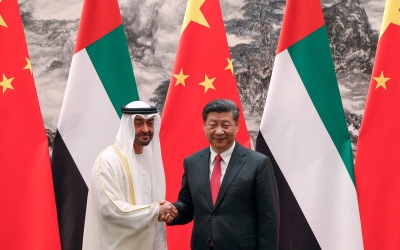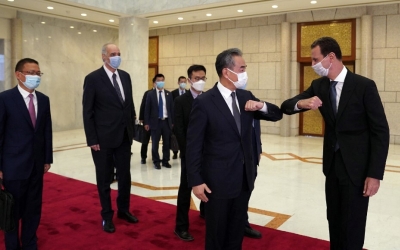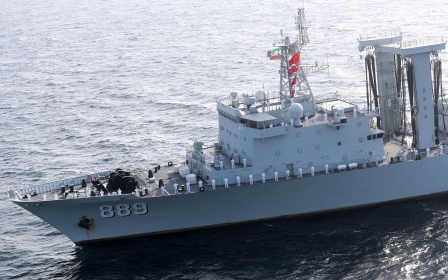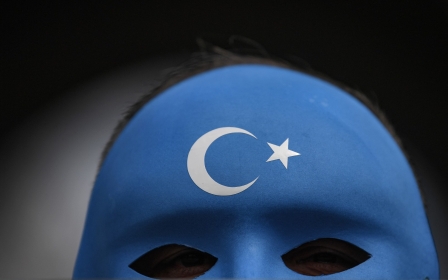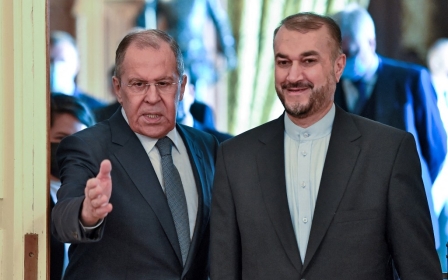Report: Iraq leading beneficiary of China's Belt and Road Initiative in 2021
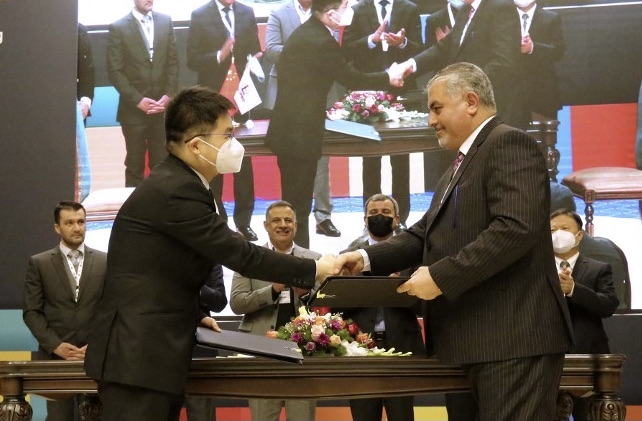
Iraq was the top beneficiary of China’s Belt and Road Initiative (BRI) in 2021, attracting about $10.5bn in financing, a study published on Wednesday said.
The oil-rich country took centre stage in what researchers from the Green Finance and Development Center at Shanghai's Fudan University described as a “strong shift” in China’s BRI investments towards the Middle East and North Africa.
According to the report published on Wednesday and reviewed by Middle East Eye, China’s financial investments and contractual cooperation across the 144 BRI countries totalled $59.5bn in 2021 - roughly in line with $60.5bn in 2020.
But in Arab and Middle Eastern countries, the level of construction investment and contracts rose 360 percent and 116 percent, respectively.
In recent years, Beijing has emerged as a key financial player across the region. In Egypt, it is taking part in President Abdel Fattah el-Sisi’s infrastructure boom, where it is building seaports and the tallest tower in Africa.
New MEE newsletter: Jerusalem Dispatch
Sign up to get the latest insights and analysis on Israel-Palestine, alongside Turkey Unpacked and other MEE newsletters
Meanwhile, trade with the Gulf states has soared in recent years due to China’s growing appetite for Middle Eastern energy.
Researchers at Fudan said that China’s oil-related finance and investment under BRI ballooned from $1.9bn in 2020 to $6.4bn in 2021.
Beijing is currently the top trade partner of the Gulf Cooperation Council (GCC), with bilateral economic activity between oil-rich countries in the bloc and the world’s second-largest economy hitting $180bn in 2020.
Wednesday’s report comes as many perceive the US role in the region as diminishing, citing America’s frayed ties with some Gulf allies, its withdrawal from Afghanistan and the announcement last year of the end of the US combat mission in Iraq.
Howard Shatz, an analyst with the Rand Corporation, told MEE previously that the narrative of a US exit from the region had been exaggerated, and that despite its investments, China was unlikely to try and replace the US as the region’s security guarantee, from which it benefits.
"Near to medium term, I don't think China will try to supplant US security," Shatz said. "If Beijing starts providing security in the region, then it may have to choose sides.”
Indeed, despite the withdrawal from Iraq, the US still retains about 2,500 troops in the country for a training and advisory role to combat the Islamic State (IS) group.
Region's myriad conflicts
And while China has been careful not to wade into the region’s myriad conflicts, working equally with foes such as Iran, Israel and Saudi Arabia, it has not evaded the instability that has plagued other investors.
Last month, gunmen opened fire on two vehicles belonging to Chinese oil giant Sinopec in Iraq's southeastern Maysan province, wounding two Sudanese guards working for the company.
And in December, rocket and gunfire targeted the premises of Chinese oil services company ZPEC in Iraq's southern province of Nasiriyah, without causing any casualties or damage.
The bulk of China’s engagement with Iraq is dominated by energy.
Iraq is the third-biggest exporter of oil to China and the two countries are cooperating to build the $5bn al-Khairat heavy oil power plant in Karbala province. Sinopec has also won the contract to develop Iraq's Mansouriya gas field near the Iranian border.
But Iraq, which is still recovering from the military campaign to defeat IS, is also looking to Beijing for help in upgrading its ageing infrastructure.
Last year, a Chinese company won the contract to build a civilian airport in Nasiriyah, and Sinotech is set to build 1,000 schools in Iraq, which will be paid for through oil products.
Researchers at Fudan say they expect an acceleration of green projects as part of China's BRI, in line with the government’s guidelines for 2022.
They noted that green energy finance and investment edged up to $6.3bn compared with $6.2bn in 2020, and that China did not engage in coal projects in 2021, in line with Chinese President Xi Jinping's pledge not to build coal-fired plants overseas.
Middle East Eye delivers independent and unrivalled coverage and analysis of the Middle East, North Africa and beyond. To learn more about republishing this content and the associated fees, please fill out this form. More about MEE can be found here.


